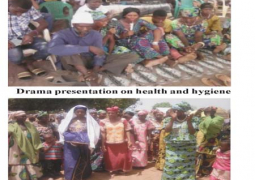Whilst our reserves have reduced significantly, the country’s gross domestic product(GDP) contracted by 1.4 per cent in 2014, compared to the growth of 4.6 per cent and 5.6 per cent in 2013 and 2012 respectively.
The budget balance, after weighing the fiscal aspect of the government’s expenditure andrevenue , also took a nosediveand recorded a deficit of D4.3 billion (12.6 per cent of GDP), which was financed by both domestic and external sources.
In the same vein, the balance of payments (BOP) estimates for the first nine months of 2014 indicate an overall deficit of US$97.48 million compared to a deficit of US$50.38 million during the corresponding period in 2013.
All this put together led to reduced gross international reserves that totaled US$111.9 million, equivalent to 4.0 months of import cover at end-December 2014 compared to US$161.06 million, or 5.5 months of import cover in December 2013.
It is a fact that the economy has experienced some bad times over the past year caused mainly by late rains and the Ebola epidemic that affected some countries in the West African region.While this is true, the resulting situation should help us to put our house in order the more, especially in respect of our preparedness as regards agriculture. Many a time learned and experienced agriculturalists have been giving some invaluable advice emphasizing the importance of graduating from rain-fed agriculture. The Ebola epidemic is not really our making but it has affected us gravely more so in the tourism sector.
“The latest estimates from the Gambia Bureau of Statistics (GBoS) indicate that real GDP contracted by 1.4 percent in 2014, compared to the growth of 4.6 percent and 5.9 percent in 2013 and 2012 respectively. The deceleration in economic activity in 2014 was primarily due to lower agricultural production which declined by 22.0 percent due to late and insufficient rains and the negative impact of the Ebola epidemic on the tourism sector,” the MPC report stated.
However we should also not negate the fact that factors such as government fiscal operations, the national debt burden, the balance of payments deficit, inflation and currency depreciation, have a role to play in the making or breaking of the current state of our economy.
It is therefore essential that the economic and othersocial factors responsible for this slump of our economy are worked on vigorously to revamp the economy.
“I don’t regret things, because I learn from mistakes. If needs be, I always make amends.”
Marc Warren



